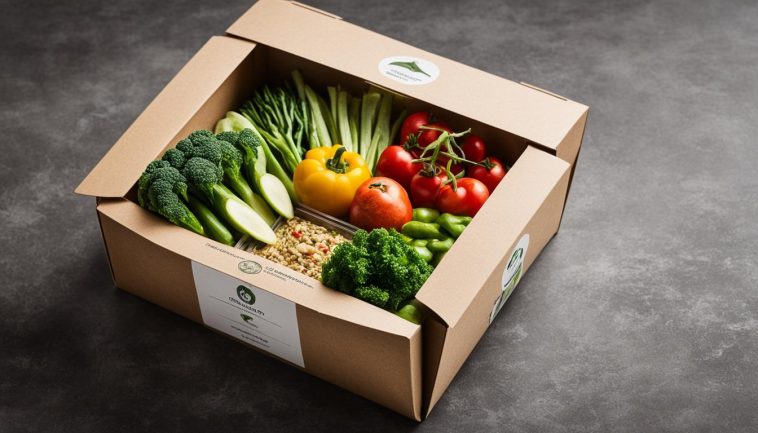Starting a home-based food business in Ontario is an exciting venture that allows you to showcase your culinary skills and creativity.
One of the key factors that can set your business apart is the use of locally sourced ingredients. By incorporating local produce as much as you can, you not only support the local economy but also provide your customers with fresh and high-quality food.
In this article, we will guide you through the process of sourcing local ingredients for your Ontario home-based food business, from understanding the local food system to building relationships with farmers and suppliers.
Benefits of sourcing local ingredients
There are many benefits to sourcing local ingredients for your small e-commerce food business.
1/ Firstly, it allows you to create a unique selling point by offering fresh and seasonal products that are not typically found in larger commercial establishments. Customers are increasingly seeking out locally sourced food due to its superior taste, nutritional value, and environmental sustainability.
2/ Another advantage of sourcing local ingredients is the positive impact it has on the local economy. By supporting local farmers and suppliers, you contribute to the growth and prosperity of your community. This can also help foster a sense of community pride and loyalty, as customers appreciate the efforts made to showcase regional flavors and food traditions.
3/ Sourcing local ingredients also reduces the carbon footprint associated with long-distance transportation. By purchasing from nearby farmers and suppliers, you minimize the distance that products need to travel, thus reducing fuel consumption and greenhouse gas emissions. This aligns with growing consumer concerns about sustainability and allows you to position your business as environmentally conscious.
Understanding the local food system in Ontario
1/ Before diving into sourcing local ingredients, it is crucial to understand the local food system in Ontario. The province is known for its diverse agricultural landscape, with fertile soil and a wide range of crops and livestock. Ontario’s local food system is supported by various organizations, such as Farmers’ Markets Ontario and the Greenbelt Farmers’ Market Network, which connect farmers with consumers.
2/ To fully grasp the local food system, familiarize yourself with the different types of farming practices in Ontario. These include conventional farming, organic farming, and sustainable farming. Each has its own set of principles and standards, so it’s important to align your home-based food business values with the type of farming that resonates with you and your customers.
3/ Additionally, familiarize yourself with the seasons and availability of different products. Ontario experiences distinct seasons, with each offering its own bounty of fresh ingredients. By understanding the seasonal availability of local produce, you can plan your menu and recipes accordingly, ensuring the freshest flavors for your customers.
Finding local suppliers and farmers’ markets in Ontario
.
Once you have a solid understanding of the local food system, it’s time to start finding local suppliers and farmers’ markets in Ontario. This step is crucial to ensure a steady supply of high-quality ingredients for your home-based food business.
1/ One of the best ways to find local suppliers is through word-of-mouth recommendations from other local businesses or chefs. Attend networking events, join online communities, and participate in industry conferences to connect with like-minded individuals who can point you in the right direction. Additionally, utilize online directories and databases specifically designed to connect farmers and suppliers with small e-commerce businesses like yours.
2/ Farmers’ markets are also excellent sources for local ingredients. These vibrant marketplaces bring together farmers, artisans, and food producers, offering a wide range of fresh produce. Visit farmers’ markets in your area to meet the vendors, sample their products, and establish relationships that can benefit your home-based food business.
Tips: Here you can find a list of various groups and initiatives in Ontario that promote the consumption of locally produced food.
Building relationships with local farmers and suppliers
Building strong relationships with local farmers and suppliers is essential for the success of your home-based food business. By establishing trust and open communication, you can ensure a reliable and consistent supply of high-quality ingredients.
When approaching farmers and suppliers, take the time to learn about their farming practices and values. Show genuine interest in their work and inquire about their products and production methods. This not only helps you understand the quality of their ingredients but also demonstrates your commitment to sourcing locally and supporting sustainable practices.
Regularly communicate with your suppliers to stay informed about product availability, seasonal changes, and any special offers. This allows you to plan your menu and recipes accordingly and avoid any last-minute disappointments.
Tips for negotiating prices and quantities with local suppliers.

Negotiating prices and quantities with local suppliers requires tact and understanding. While it’s important to ensure a fair deal for your home-based food business, it’s equally important to respect the efforts and costs associated with local production.
Start by understanding the factors that influence pricing, such as labor, inputs, and market demand. This knowledge will help you have informed discussions with suppliers and negotiate from a place of understanding. Consider offering to purchase larger quantities or committing to long-term partnerships, as this can often lead to better pricing terms.
Remember that building a mutually beneficial relationship with suppliers goes beyond price negotiations. Show appreciation for their products and processes, and be flexible in accommodating their needs. By demonstrating that you value their work, you are more likely to foster a long-term partnership that benefits both parties.
Highlighting the use of local ingredients in your marketing and branding
Once you have successfully incorporated local ingredients into your recipes and menu, it’s time to highlight their use in your marketing and branding efforts. This will not only attract customers who value local food but also differentiate your home-based food business from competitors.
1/ Highlight supplier names on menus and websites for transparency.
2/ Share supplier stories and dedication to quality.
3/ Utilize social media for behind-the-scenes glimpses of sourcing.
4/ Create a personal connection with the audience through social media.
5/ Host events or workshops celebrating local ingredients.
6/ Educate customers on the benefits of supporting local food systems.
In conclusion, sourcing local ingredients for your Ontario home-based food business is a rewarding and impactful choice. By supporting local farmers and suppliers, you contribute to the local economy, offer fresh and high-quality food to your customers, and reduce your environmental footprint.
Understanding the local food system, building relationships with farmers and suppliers, and incorporating local ingredients into your recipes and marketing efforts are essential steps in embracing the farm-to-table movement.
So, if you’re ready to take your home-based food business to the next level, begin sourcing local ingredients today.
FreshFind is your go to free eCommerce tool, built for home-based food makers. Check us out today and excel your business to the next level.





GIPHY App Key not set. Please check settings